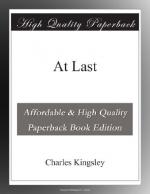The negress’ watchful eyes dilated with greedy expectancy at Mrs. Dorrance’s ghastly face when this last had been examind, but she was foiled if she hoped for any valuable addition to her store of information, or anything resembling elucidation of her pet mystery.
“It will take me some time to read all these,” remarked Mabel, still scanning the half-sheet she held. “You had better not wait, Mammy. They are safe with me. No one else shall see them, and no harm can come to you through them.”
She promised mechanically what she supposed would soonest buy for her privacy and needed quiet, and gave no heed to the manifest disappointment of her visitor.
When she was at last alone, Mrs. Dorrance relocked the door, and bent close to the lamp, as if more light upon the surface of the document would tend to clear up the terrible secret thus strangely committed to her discretion and mercy. The paper was a certificate, drawn up in regular form, and signed by a clergyman, whose address was appended below, in a different hand writing—of a marriage between Julius Lennox and Clara Louise Dorrance.
“Her very name!” repeated the whitening lips. “I remember asking her once what the ‘L’ in her signature stood for.”
But while she said it, there was a look in the reader’s eye that bespoke inability or reluctance to grapple with the revelation threatened by the discovery.
“The letters may tell me more!” she added, in the same frightened whisper, refolding the certificate.
They did—for they were in the long, sloping chirography of her sister-in-law, and signed “Your ever-fond, but lonely wife.” Each contained, moreover, allusions to “Ellis,” to “Clermont,” to “Julia,” and to “Herbert”—all family names in the Dorrance connection; spoke gratefully of her parents’ kindness to his “poor Louise” in the absence of “her beloved Julius;” and was liberally spiced with passionate protestations of her inconsolableness and yearnings for his return. Both were dated ten years back, and the paper was yellow with time, besides being creased and thumbed as by many readings.
“What am I to do?” thought Mabel, sinking into her chair, trembling all over with terror and incertitude.
If there were one sentiment in Winston Aylett’s heart that equalled his haughtiness, it was love for his wife. But could it be that he had totally forgotten pride and his habitual caution in the selection of the woman who was to be the partner of his home, fortune, and reputation—possibly the mother of children who were to perpetuate the noble name he bore? By what miracle of unrighteous craft, what subornation of witnesses, what concealments, what barefaced and unscrupulous falsehoods had this adventuress been imposed upon him as unmarried, when the evidence of her former wedlock was held by a low stroller—a drunken wretch who might betray it in an unguarded or insane hour, and who, judging from his exterior, would not be averse to publishing or selling the information if he could make more money by doing this than by preserving the secret. And how came he by these papers?




